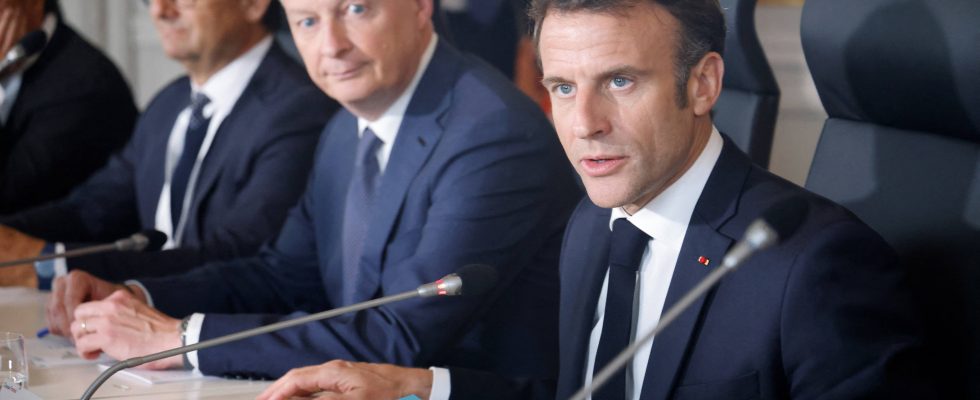Emmanuel Macron made, Monday evening, May 15, the promise of a tax cut, in particular for the middle classes. But when will it happen? And by what levers? The day after the interview with the President of the Republic on TF1, many questions emerge.
“In our budgetary trajectory” until 2027, “there are two billion tax cuts for households. These two billion, I asked the government to make me proposals so that they focus on these classes average,” he said. The day before, in an interview with the newspaper Opinion, the Head of State had already insisted on the “middle classes”, citing “those who are too rich to be helped and not rich enough to live well”, with “income between 1,500 and 2,500 euros”. That is between 10 and 12 million households.
“Everything is open”
The Head of State did not specify the measures envisaged, indicating that he was not closing the door to any proposal. “There may be smart things to do on part of the charges you pay, the contributions you pay when you are employed,” he added without further details. In the columns of Parisian, the Ministry of Economy and Finance responds on Tuesday that proposals will be made to the Head of State in the coming weeks. “Everything is open, the President said so! We will look at the best options, whether it is income tax or contributions”.
Asked by BFM TV, the Minister of the Economy Bruno Le Maire did not give more leads but confirmed that this reduction in the tax burden will target “in particular people who work”. “It’s a continuation of what we’ve been doing for six years now. We want to continue in this direction to reward hard work and reward those who work and give themselves a hard time.”
A reduction in employee contributions in the viewfinder?
In his interview at Opinion, the president says he wants to “reduce what is called the tax-social wedge”. A formula that could suggest that he intends to bring the net salary closer to the gross salary, in particular through a reduction in tax deductions and contributions. To implement the presidential promise, “several levers are possible: income tax, employee contributions, that is to say the difference between the gross and the net for the employee”, in turn indicated tuesday on C news the Minister Delegate for Public Accounts Gabriel Attal, tasked with the Minister of the Economy Bruno Le Maire to make proposals to the Head of State.
The lever of the reduction in income tax activated during the first five-year period, had then allowed 5 billion euros in savings for households. That year, the 12 million households in the first tax bracket – those whose annual incomes were then between 9,965 euros and 25,405 euros annually – had benefited from an annual income tax reduction of 350 euros. on average.
No reduction in inheritance tax planned
In addition, the track of a reduction in inheritance taxes, Emmanuel Macron’s campaign promise in 2022, seems more or less abandoned. “Very few French people from the middle class pay inheritance tax and this measure is therefore more likely to benefit the wealthiest”, explains François Ecalle, former senior adviser to the Court of Auditors, at the Figaro. “This gesture for the middle classes will be done instead of the measure on inheritance rights”, confirms for his part a government heavyweight with our colleagues from the Echoes.
Others are less optimistic about the feasibility of this promise and point to the budgetary constraint which weighs on France today, while the government has pledged to “accelerate the country’s debt reduction”. Last week, the first president of the Court of Auditors Pierre Moscovici declared that France had to prove to the financial markets “its desire to stabilize the budgetary situation”, calling on the government to “absolutely avoid uncompensated tax cuts, whatever be its nature”. The Governor of the Banque de France François Villeroy de Galhau had also called in February on France 2 to stop “the race to lower taxes in this country, especially with the deficits that we have”.
